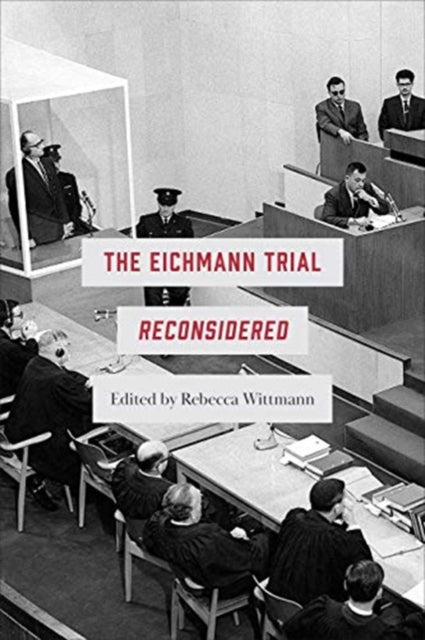
The Justice Laboratory: International Law in Africa
 Limited Time Sale
Limited Time Sale$18.61 cheaper than the new price!!
Free cash-on-delivery fees for purchases over $99
Product details
| Management number | 201830133 | Release Date | 2025/10/08 | List Price | $18.61 | Model Number | 201830133 | ||
|---|---|---|---|---|---|---|---|---|---|
| Category | |||||||||
International criminal law has been created to punish perpetrators of genocide, war crimes, and crimes against humanity, but it has been a declining force due to long delays in prosecutions, lagging public attention, and a globally rising authoritarianism. This book examines five examples of international criminal justice as they have been applied across Africa, including the International Criminal Court, the International Criminal Tribunal for Rwanda, and the hybrid tribunal established in Senegal to try state crimes committed in Chad. It also examines emerging and proposed international criminal justice mechanisms, such as a tribunal intended to facilitate peace in South Sudan and the developing human rights practice of the East African Court.
Format: Paperback / softback
Length: 240 pages
Publication date: 05 April 2022
Publisher: Brookings Institution
Examining how international criminal law has—and hasn t—brought justice following war crimes in Africa Ever since World War II, the United Nations and other international actors have created laws, treaties, and institutions to punish perpetrators of genocide, war crimes, and crimes against humanity. These efforts have established universally recognized norms and have resulted in several high-profile convictions in egregious cases. But international criminal justice now seems to be a declining force—its energy sapped by long delays in prosecutions, lagging public attention, and a globally rising authoritarianism that disregards legal niceties. This book reviews five examples of international criminal justice as they have been applied across Africa, where brutal civil conflicts in recent decades resulted in varying degrees of global attention and action. The first three chapters examine key international mechanisms: the International Criminal Court, the International Criminal Tribunal for Rwanda, and the hybrid tribunal established in Senegal to try state crimes committed in Chad. These chapters illustrate how the design and practice of the institutions led to similarly unexpected and unsatisfying outcomes. The final two chapters examine emerging and proposed international criminal justice mechanisms. One is a tribunal intended to facilitate peace in the new but war-torn country of South Sudan, not yet operational and unlikely to perform better than its predecessors. Finally, the book considers the developing human rights practice of the little-studied East African Court, a regional commercial court in Arusha, Tanzania, to show how local judicial creativity can win a role for courts in facilitating good governance. Written in an accessible style, this book explores the challenges and opportunities of international criminal justice in Africa and offers insights into how it can be strengthened to better serve the needs of victims and promote peace and justice in the region.
Examining how international criminal law has—and hasn't brought justice following war crimes in Africa
Ever since World War II, the United Nations and other international actors have created laws, treaties, and institutions to punish perpetrators of genocide, war crimes, and crimes against humanity. These efforts have established universally recognized norms and have resulted in several high-profile convictions in egregious cases. But international criminal justice now seems to be a declining force—its energy sapped by long delays in prosecutions, lagging public attention, and a globally rising authoritarianism that disregards legal niceties.
Correction of product information
If you notice any omissions or errors in the product information on this page, please use the correction request form below.
Correction Request Form









![Leafeon Vstar - 210/172 [状態A-]S12A - SAR - NEAR MINT - Pokémon TCG Japanese](https://cdn.shopify.com/s/files/1/0703/4804/6632/files/leafeon-vstar-210-172-zhuang-taia-s12a-sar-near-mint-pokemon-tcg-359.webp?v=1710016906)






